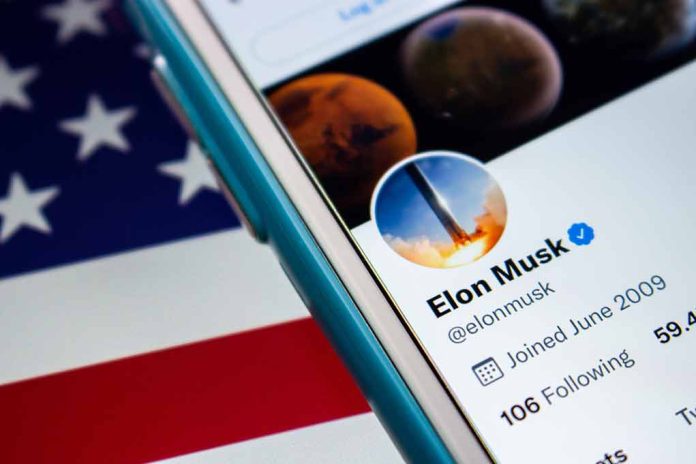
Elon Musk has proposed to slash the federal budget by $2 trillion if Donald Trump secures victory in the 2024 presidential race.
At a Glance
- Elon Musk aims to cut $2 trillion from the federal budget upon Trump’s potential election win.
- Musk’s potential role as head of a new government department suggests significant political involvement.
- Musk’s companies hold substantial federal contracts, prompting conflict of interest concerns.
- Trump’s economic plans involve tariffs, tax credits, and budget reductions.
Musk’s Ambitious Proposal
Elon Musk has claimed the ability to eliminate $2 trillion from the federal budget if Donald Trump wins the 2024 presidential election. Speaking at Madison Square Garden, Musk outlined his vision, emphasizing the necessity for reduced government spending and minimization of taxpayer burdens. The creation of a new “Department of Government Efficiency” (DOGE) is proposed to facilitate this transformation, with Musk positioned as its leader.
The proposed reduction equates to nearly a third of the current federal spending, $6.75 trillion in FY24. This dramatic cut aligns with Musk’s advocacy for diminished government expenditures and taxation, asserting that “Your money is being wasted. We’re going to get the government off your back and out of your pocketbook.” Critics highlight the potential conflict of interests, given Tesla and SpaceX’s substantial federal contracts.
However, many conservatives support this approach, echoing the sentiments of former President Trump, who has long championed fiscal responsibility and reducing the size of government. This commitment to limiting federal spending resonates with those who believe that less government intervention leads to greater economic freedom and prosperity for all Americans.
Trump’s Economic Strategy
While Trump has not explicitly outlined plans to manage federal debt reduction, he has pitched replacing traditional taxes with tariffs. These tariffs are part of a broader strategy to stimulate domestic production. Moreover, Trump has proposed budget cuts, tax credits for family caregivers, and initiatives to lessen corporate taxes. These proposals reflect a keen focus on reinforcing domestic industries.
Despite policy criticisms, Musk’s political engagement is unmistakable, with reports of him allocating $132 million to support Trump and the Republican party. His active involvement in campaign events accentuates his dedication to a streamlined governmental framework.
The Cryptocurrency Connection
Brad Garlinghouse, CEO of Ripple Labs, is optimistic about regulatory shifts post-election. Skepticism about current US cryptocurrency rules drives Ripple’s operations primarily outside the US. A legal victory has recently declared XRP not a security in retail sales, bolstering optimism. Garlinghouse anticipates a Congress more supportive of cryptocurrency and innovation, encouraging startups to operate abroad to dodge existing hurdles.
“This is the most important election we’ve had, but I also believe no matter what happens, we’re going to have a more pro-crypto, more pro-innovation Congress than we’ve ever had,” Brad Garlinghouse shared during an interview with CNBC at DC Fintech Week.
Musk’s immense proposal introduces a tangible prospect of federal financial reformation, contingent on Trump’s electoral success. The dynamics of such significant federal budgetary cuts alongside extensive political involvement sketch an ambitious outlook.





